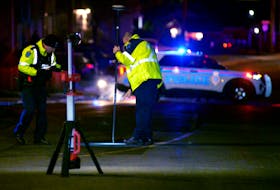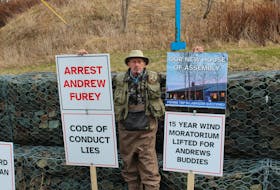A psychologist with experience diagnosing and treating post-traumatic stress disorder says it’s not practical to assess someone in the moments immediately following a serious event.
RELATED:
Still, Curtis Hillier believes concerns recently raised by Vincent McGrath warrant some closer consideration.
McGrath was a witness to a serious motor vehicle accident in which a person was killed and another gravely injured. He was actually one of the first people on the scene and tried desperately to help the victims as best he could until professional emergency personnel could get to the remote highway scene.
In the aftermath, the Kippens man said it would have been nice for Good Samaritans like himself to have been approached by one of those professionals and checked to make sure they were OK mentally with having been thrust into a horrible situation unexpectedly.
Hillier said nearly everyone who witnesses a traumatic event will experience an acute stress reaction to that event. However, those normal reactions tend to naturally subside within 48 to 72 hours.
“That’s why we don’t do debriefing with first responders until that much time has passed,” explained Hillier, a former military psychologist who now has a private practice in St. John’s.
Ongoing problems dealing with this sort of experience are a matter of degree and a matter of time, he said.
Any negative reaction to an event — reliving the scene, difficulty sleeping and so on — that goes beyond three days would clinically be called an acute stress disorder, but Hillier said those issues usually resolve themselves within about a month.
Anything lingering beyond 30 days could be diagnosed as post-traumatic stress disorder, said Hillier.
“So, it would be impractical to do a roadside assessment of someone who’s been a witness to something traumatic,” said Hillier.
Further, he knows of no police officer certified to conduct any such mental health assessment.
But McGrath is certainly on to something, noted Hillier, because it is impossible to tell who will be able to deal with what happened and who might not be able to.
“I would be more willing to promote having first responders carry information cards that they could hand out to bystanders,” said Hillier.
He said it would not cost a lot of money to create business card-sized cards that have information about what to watch out for in the time following experiencing a traumatic event and links to resources that could help anyone who can’t seem to shake off what they saw.









